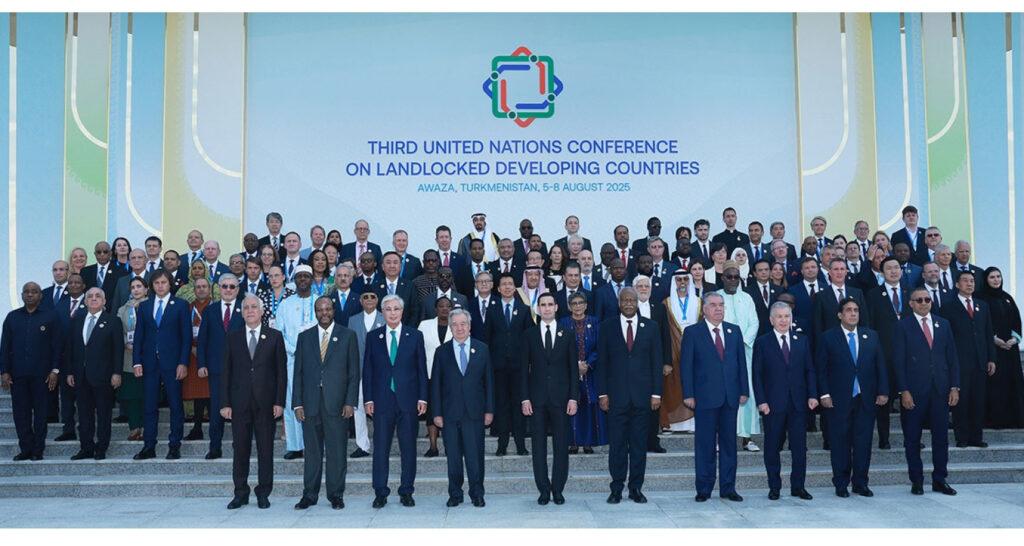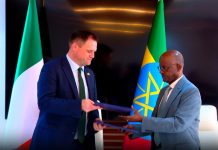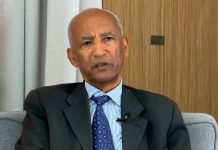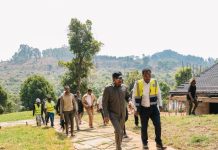Africa-Press – Ethiopia. The Third United Nations Conference on Landlocked Developing Countries (LLDCs), held in Awaza, Turkmenistan, marks a pivotal moment for the 32 nations without direct access to the sea — home to over 600 million people. The conference’s timing is no coincidence: it coincides with the inaugural celebration of August 6 as the International Day of Awareness of the Special Development Needs and Challenges of Landlocked Developing Countries, a UN-recognized effort to spotlight the deep structural hurdles LLDCs face.
The Conference wrapped up Friday with delegates adopting a landmark political declaration aimed at speeding up sustainable development and boosting resilience in 32 nations that lack direct access to the sea.
Held under the theme ‘Driving Progress Through Partnerships’, the four-day forum known as LLDC3 brought together Heads of State, senior UN officials, development partners and private sector leaders to tackle persistent challenges faced by LLDCs, including high trade costs, inadequate infrastructure, and vulnerability to climate change.
Anchored by the Awaza Programme of Action for 2024–2034, which was adopted by the UN General Assembly last year, the new ‘Awaza Declaration’ outlines a unified strategy across five priority areas:
Structural economic transformation;
Trade and regional integration;
Transport and infrastructure;
Climate change adaptation and disaster risk reduction; and,
Mobilizing finance and partnerships.
From the mountainous core of East Africa, Ethiopia enters this forum as one of the most consequential LLDCs — not only in terms of size, population, and economic ambition, but also in terms of its diplomatic and development leadership. Geography has long defined Ethiopia’s constraints, but today, Ethiopia is helping redefine what landlocked development can look like.
Ethiopia, like its fellow LLDCs, remains dependent on neighbouring countries for port access. This reality imposes significant costs: transport prices are up to 30% higher than for coastal states, export and import times are longer, and integration into global value chains remains limited. More critically, the prosperity of LLDCs is often tied to the political and economic stability of their transit corridors — creating dependencies that can obstruct long-term planning.
But Ethiopia is not standing still. While the LLDC Conference calls for global partnerships and investment, Ethiopia is arriving with its own story of agency — one driven by strategic infrastructure, regional diplomacy, and multilateral engagement.
Diplomacy and Dialogue
Ethiopia’s approach to resolving its landlocked challenge has been one of cooperation and dialogue, not confrontation. The country has actively cultivated bilateral and multilateral relationships aimed at strengthening regional economic corridors. These include the long-standing cooperation with Djibouti, joint infrastructure planning with Kenya and expanded power trade agreements across the Horn of Africa.
Its diplomatic messaging has consistently emphasized shared benefit — an approach in line with both the Sustainable Development Goals and the spirit of the LLDC conference. As a founding member of the African Union and an anchor state in regional diplomacy, Ethiopia continues to advocate for regional integration over isolation.
Ethiopia has, on this occasion, submitted its request based on the principles of reciprocity and mutual benefits, which are currently recognized in modern diplomacy. Ethiopia’s request will not undermine the interests and rights of other nations, as it will be pursued through diplomacy, negotiations, and agreements founded on the principle of shared development.
Experts are acknowledging Ethiopia’s demand as it is also significantly advantageous for the development of the entire region, noting the increasing interest of nations in Africa, particularly those in the eastern part of the continent, which are actively striving to improve trade among themselves and boost their collective economic advancement. In this context, Ethiopia’s request for access to the sea through the principle of shared development offers a valuable opportunity for the countries in the region, especially since Ethiopia has been experiencing rapid growth and has demonstrated a strong interest in collaborating with these nations towards a common goal.
Building Infrastructure to Bridge the Gap
In the last decade, Ethiopia has prioritized infrastructure to overcome its geographical disadvantage. These investments include:
The Ethiopia–Djibouti railway, a flagship project connecting the capital to the sea.
A network of dry ports and logistics hubs, streamlining inland trade flows. Ongoing construction of roads, fiber-optic lines, and electric transmission grids that cross national borders and support both commerce and connectivity.
These corridors are not just national assets — they are regional lifelines, enabling trade, employment, and security in neighbouring countries as well. In this, Ethiopia demonstrates the LLDC principle that development must be approached collectively.
A Voice for LLDCs — and for Africa
At the Third Conference, Ethiopia championed not only its own interests but also the wider cause of African LLDCs. With 16 of the 32 landlocked countries located in Africa, Ethiopia’s experience offers a powerful model of self-reliance, regional cooperation, and strategic investment.
In his address to the conference, Ethiopia’s Minister of Transport and Logistics, Alemu Sime, underscored that landlocked developing countries continue to face heightening challenges, including a lack of direct access to the sea, high transportation cost, and inadequate infrastructure. Geopolitical tensions, climate change, and high debt burden further compound these challenges. He also expressed Ethiopia’s belief that the resources on the high seas, which represent roughly 50% of the planet’s surface and 60% of the global ocean areas, can drive prosperity for all countries.
Ethiopia has also played an active role in international LLDC fora, consistently calling for:
More inclusive financing mechanisms for transport and trade infrastructure.
Technology transfer and digital connectivity for landlocked states.
A reduction in bureaucratic and tariff barriers at borders and along trade corridors.
Stronger platforms for transit cooperation agreements, particularly where coastal states are also developing economies.
These advocacy efforts underscore Ethiopia’s readiness to contribute to global policymaking, not just to receive aid or technical assistance.
Connecting Sea Access with Sovereign Development
Ethiopia’s commitment to peaceful diplomacy has extended even to the most sensitive strategic question: sea access. In recent years, the country has opened high-level discussions with regional states on arrangements that would enable direct access to maritime trade, within frameworks of mutual benefit and respect for sovereignty. These efforts are not about contesting borders or coercion; rather, they reflect visionary diplomacy — seeking win-win solutions that serve national development while enhancing regional security and stability.
This message aligns with the LLDC agenda: landlocked status should not mean locked-out status. With the right legal, financial, and diplomatic frameworks, countries like Ethiopia can unlock growth pathways that benefit not only themselves, but also their neighbours and the global economy at large.
Toward a Future of Equitable Integration
As the international community gathers, Ethiopia brings to the table both practical lessons and strategic ambitions. Its experience illustrates how landlocked nations can overcome structural constraints — not through isolation, but through collaboration, innovation, and sustained leadership.
For energetic states like Ethiopia, the LLDC Third Conference presents an opportunity to echo that conviction and turn it into actionable global policy.
For More News And Analysis About Ethiopia Follow Africa-Press






